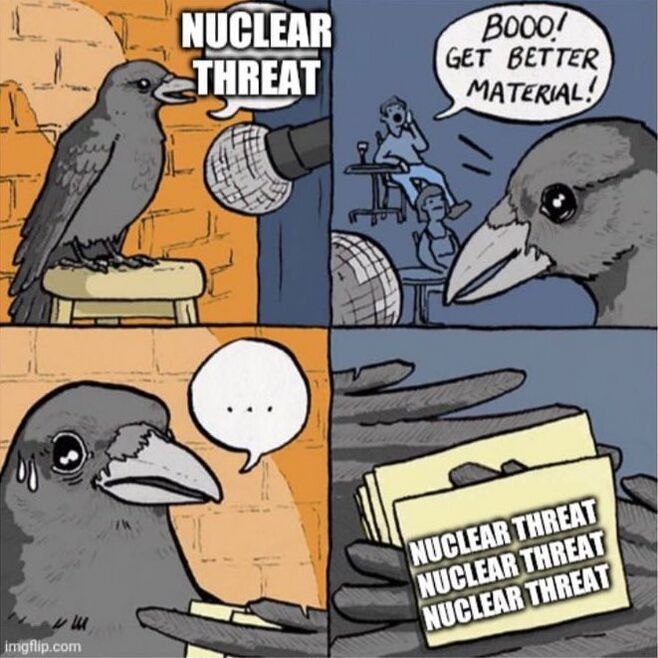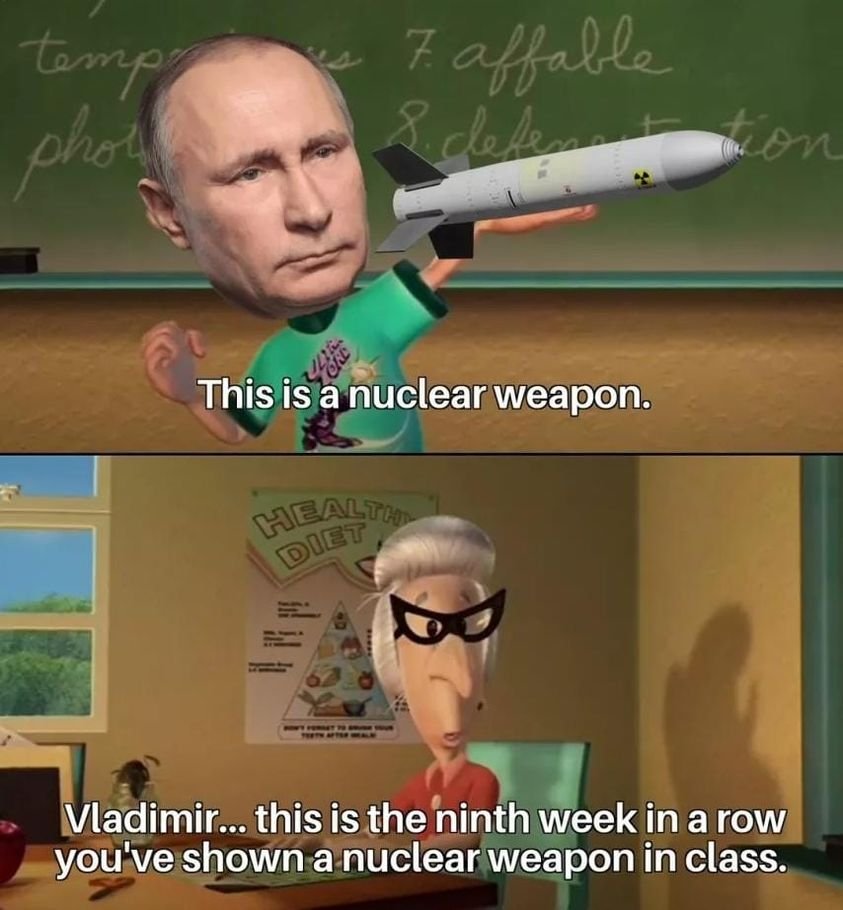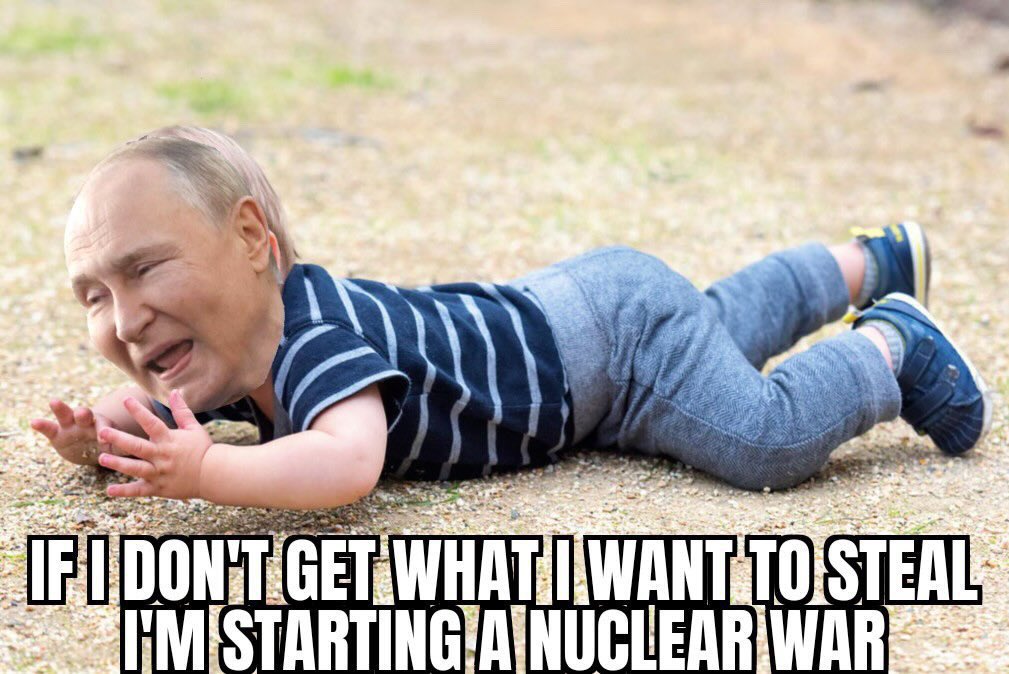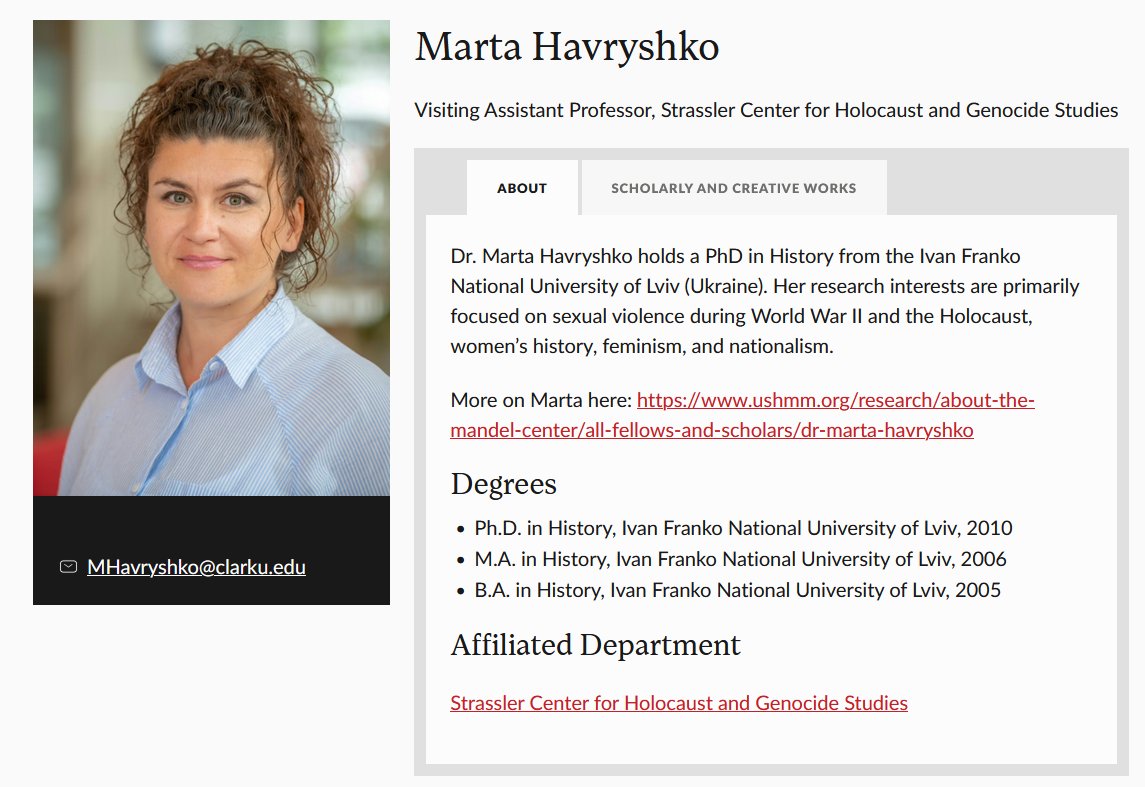In today's #vatniksoup, I'll introduce an American political strategist, Samuel Charap (@scharap). He's best-known for strongly arguing against the Western military support to Ukraine, and advising Ukraine to give up to imperialist Russia's demands.
1/18
1/18
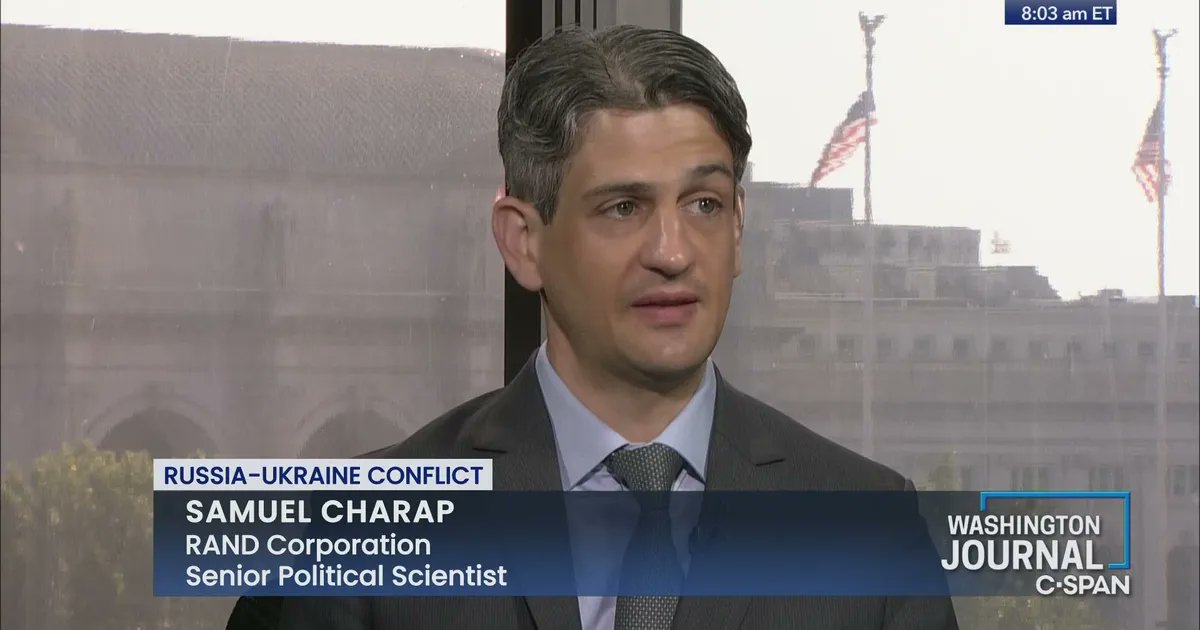
Samuel Charap is a senior political scientist at the RAND Corporation, an American think tank largely funded by the US government. He also studied in Kyiv and at MGIMO, an elite Moscow university with close ties to Russian intelligence.
2/18


2/18


He's also member of the Valdai Discussion Club, a Moscow-based think tank that has been described as a "Russian equivalent to Davos", and Dutch sociologist Van Herpen wrote that the club is a soft power effort by the Kremlin in service of Russian foreign policy goals.
3/18



3/18



Throughout the years, Charap has called for negotiations between Kyiv and Moscow. Of course there's nothing wrong with that, but time has shown that a) Putin is not negotiating in good faith, and b) any treaty between Russia and Ukraine (or anyone) doesn't hold.
4/18


4/18


Sam's naive attitude towards the Kremlin and their trustworthiness can be seen for example in his 2019 op-ed, in which he called for Ukraine to implement its obligations under the Minsk 2, an agreement that was largely ignored and broken by both Russia and Ukraine.
5/18



5/18
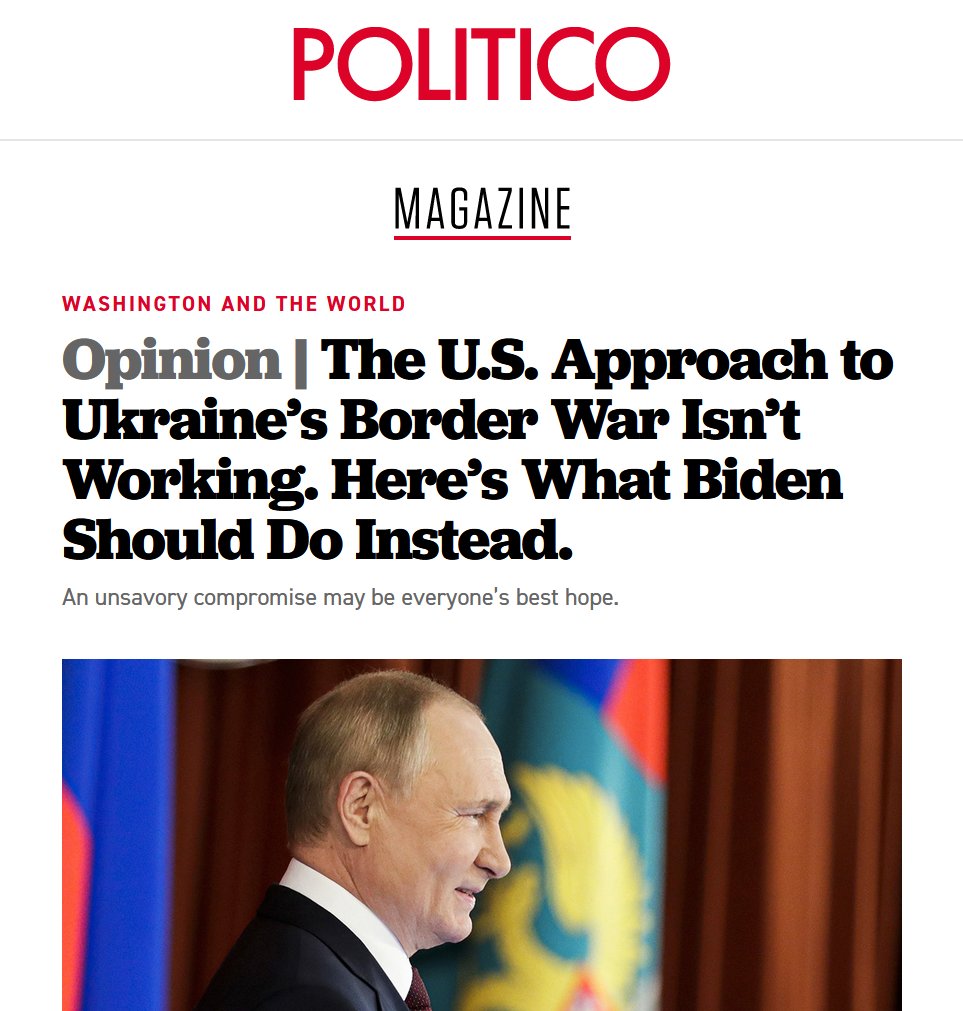

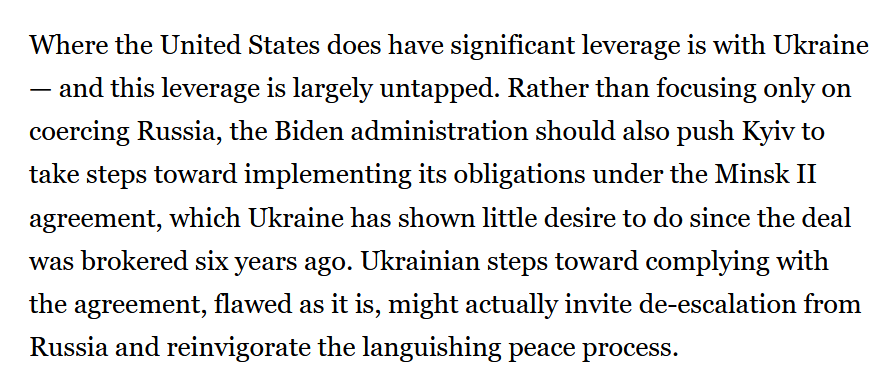
In addition, Russia has violated the UN Charter, Nuclear NPT, Helsinki Accords, Belovezha Accords, Budapest Memorandum, Black Sea Fleet Treaty, Friendship Treaty, Treaty on Azov Sea and Kerch Strait, Border Treaty of 2003, Minsk agreements, and the Kharkiv Pact.
6/18
6/18

Charap's "peace at any price" stance is always easy to defend, since most people would love to have peace. But if we don't also talk about the costs of peace, the whole discussion is pointless.
7/18




7/18




At the 2023 Lennart Meri Conference, Ukrainian activist Olena Halushka asked Charap about the cost of Russia's occupation, referring to mass graves, filtration camps, and mass deportations of children. Charap stated that it's ultimately up to the Ukrainian leadership...
8/18
8/18
...to decide whether these consequences are worth the sacrifices in the battlefield. Interestingly, his op-eds and talks are always suggesting for Ukraine to "negotiate" with Russia, which would without a doubt lead to concessions and more of such horrible war crimes.
9/18
9/18

I have previously written about the consequences of Russian victory in Ukraine, and most of us can probably agree that this would be a horrible fate for any Ukrainian who is left in these occupied regions:
10/18
10/18
https://twitter.com/P_Kallioniemi/status/1757334171586891953
Also, we should also remind ourselves that the Kremlin hasn't been willing to negotiate for a long time now. In Mar 2024, Putin himself stated that holding negotiations while Ukraine is suffering from ammunition shortage would be "absurd".
11/18
11/18
Charap has also been a strong opponent of military aid to Ukraine. In Jan 2022, he published an article on Foreign Policy titled "The West's Weapons Won't Make Any Difference to Ukraine". Take a look at the maps below and tell me if you agree with Mr. Charap.
12/18


12/18

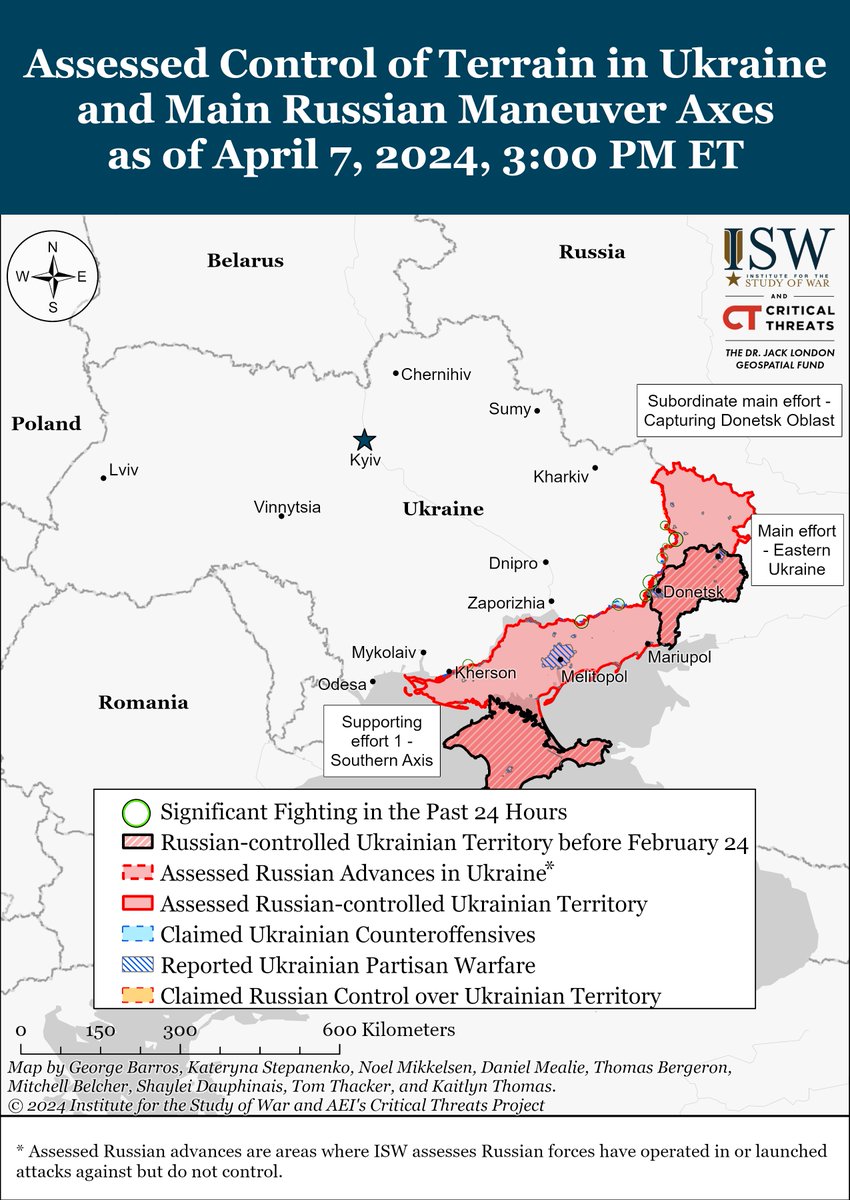
In Jun 2023, Charap published another op-ed, criticizing the West for focusing more on providing military aid, intelligence and economic assistance to Ukraine rather than calling for the two parties to negotiate on peace.
13/18
13/18

In his Aug 2023 New Yorker article titled "The Case for Negotiating with Russia", he suggested that Ukraine will have to make concessions to Russia, even though Ukraine has successfully liberated over half of the territories Russia occupied at some point.
14/18
14/18

All this wouldn't worry me too much if Mr. Charap and his silly talks about negotiations and criticism of military aid were ignored. But they're not. Charap's a regular visitor to the White House's National Security Council (NSC), headed by Jake Sullivan.
15/18
15/18

According to Michael @McFaul, Sullivan and Biden recently "bought into" the idea that sending too much military aid to Ukraine would cause Russia to use tactical nukes against the US. This is just speculation, but maybe Sullivan is actually listening to Mr. Charap?
16/18
16/18

But there's nothing new with Russia's threatening with nuclear weapons & Putin's people have been doing it since at least 2007. Many people, including Musk & Sacks, use these empty threats as an excuse to let Russia do whatever they want in Ukraine:
17/18 vatniksoup.com/en/nuclear-thr…


17/18 vatniksoup.com/en/nuclear-thr…
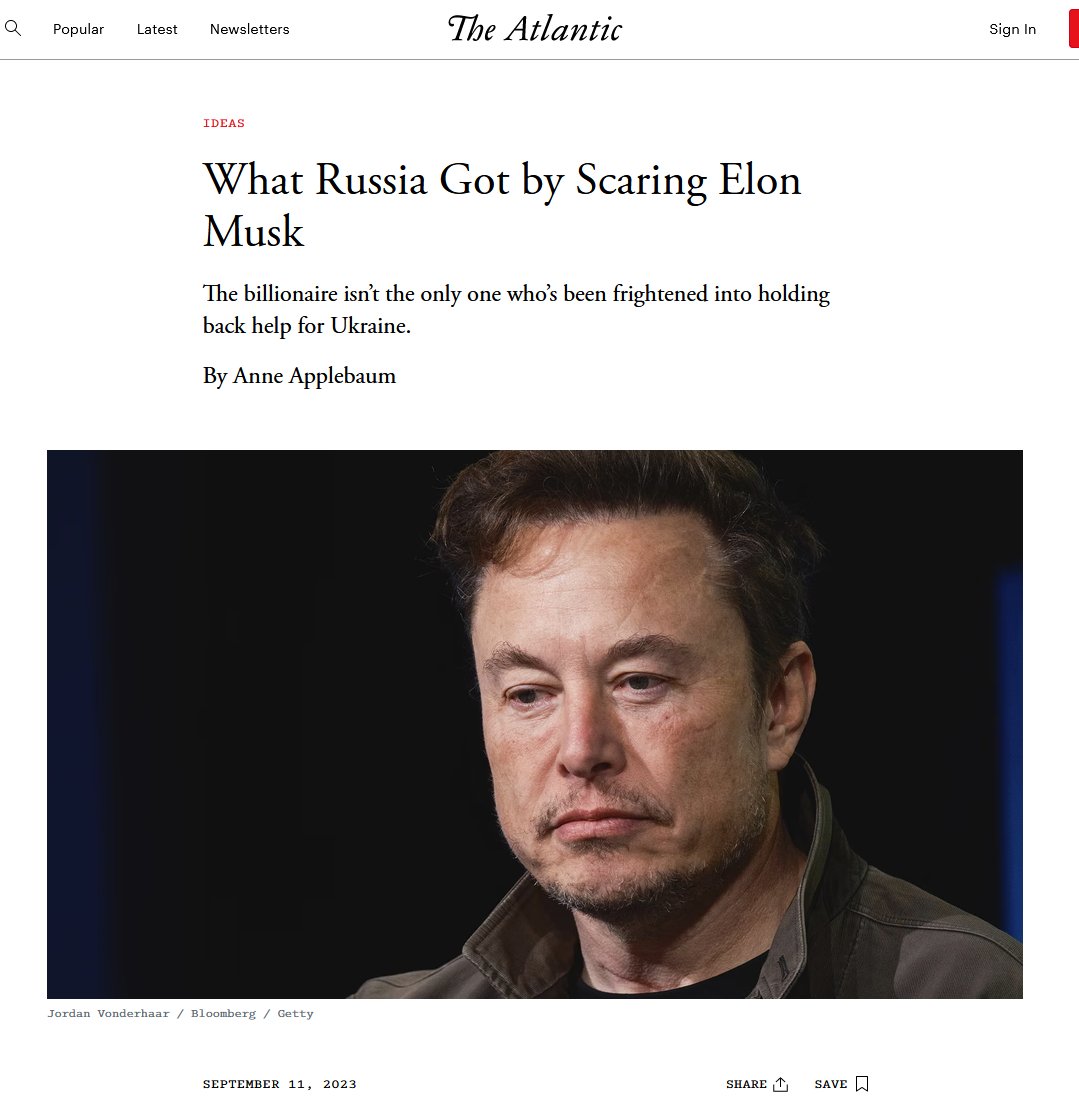
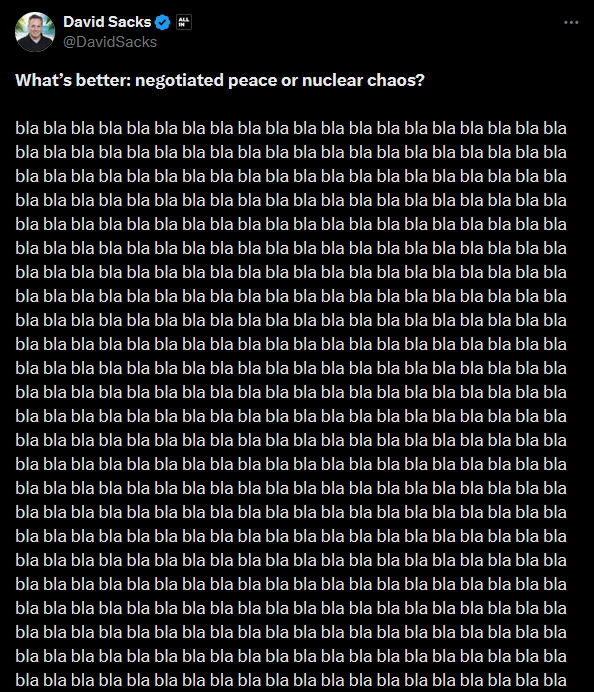
To conclude, of course there should always be room for diplomacy and back-channel conversations, but one should always remember the unreliability of the Kremlin.
And just a few days ago, Peskov said that Russia and NATO are already in "direct confrontation".
18/18



And just a few days ago, Peskov said that Russia and NATO are already in "direct confrontation".
18/18



CORRECTION 16/18:
Wrong Michael - not @McFaul, but @RepMcCaul.
Wrong Michael - not @McFaul, but @RepMcCaul.
• • •
Missing some Tweet in this thread? You can try to
force a refresh


























